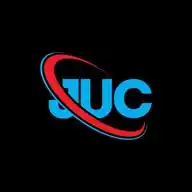
Taxmobile.Online
824 subscribers
About Taxmobile.Online
Join the Taxmobile.Online Premium Tax Community on Telegram – Your Gateway to Tax Excellence Taxmobile.Online is your trusted partner for advancing tax knowledge and simplifying compliance. Designed for tax practitioners, business owners, and administrators, we provide cutting-edge research, personalized coaching, expert-led technical sessions, and online certificate courses to help you stay ahead in your field. Why Join the Premium Tax Community on Telegram? For just N50,000 per year, enjoy exclusive access to: 1. Expert Tax Community on Telegram: Connect with professionals, exchange insights, and stay updated on the latest tax trends directly on Telegram. 2. Extensive Tax Library: Access a wealth of resources, including guides, tools, and templates, all within your Telegram group. 3. Monthly Live Technical Sessions: Participate in live sessions on key tax topics hosted on Telegram. Missed one? Replay recordings anytime. 4. Recorded Masterclasses & Webinars: Learn at your pace with on-demand access to past sessions covering critical tax issues, accessible via Telegram. 5. Exclusive Q&A Sessions: Ask your pressing tax questions and get expert answers in members-only Telegram discussions. Key Benefits: Stay Updated: Be at the forefront of tax policies and trends. Enhance Expertise: Deepen your understanding of tax compliance and management. Career Growth: Leverage expert resources and networking opportunities on Telegram. On-Demand Learning: Access reliable tax resources anytime, anywhere via Telegram. Your Investment: Only N50,000 per year for unparalleled access to premium tax resources, networking, and expert sessions, all on Telegram. Take the Next Step: Elevate your tax expertise and connect with a thriving professional community on Telegram. 👉 Join now: https://im.page/c466d424 Disclaimer: Information provided is for general purposes only. Consult a professional for tailored advice. Visit https://taxmobile.online/ for more details. Taxmobile.Online—Advancing Tax Knowledge.
Similar Channels
Swipe to see more
Posts

Strengthening Global Tax Cooperation: Key Priorities of the UN Committee of Experts on International Cooperation in Tax Matters (2021–2025) In an era marked by economic globalization, digital transformation, and evolving fiscal pressures, tax policy has become central to achieving sustainable development and strengthening national economies—particularly in developing countries. The United Nations Committee of Experts on International Cooperation in Tax Matters (hereafter referred to as "the Committee") plays a critical role in shaping inclusive, fair, and effective international tax standards. As it convenes for its 31st Session, the Committee is intensifying its efforts to support countries—especially developing economies—in strengthening tax policy and administration, mobilizing domestic resources, and building tax systems that are fit for purpose in a rapidly changing world. Mandate and Composition of the Committee The Committee comprises 25 distinguished tax experts, nominated by their respective governments and appointed by the UN Secretary-General. These members serve in their personal capacities, reflecting a wide range of legal traditions, administrative practices, and economic conditions. Their diversity ensures that the Committee's recommendations and guidance are globally relevant and regionally responsive. The Committee’s overarching mission is to: Enhance international cooperation in tax matters, Promote equitable and efficient tax systems, Provide practical guidance on tax administration, and Address the particular challenges faced by developing countries. Strategic Focus Areas: 2021–2025 The Committee’s agenda for 2021–2025 is structured around three core pillars: Policy and Standards, Emerging Issues, and Practical Implementation. 1. Policy and Standards This area addresses the development and refinement of international tax norms and standards, with a focus on inclusivity and practical application. Key workstreams include: Revision of the UN Model Double Taxation Convention between Developed and Developing Countries, ensuring it reflects evolving economic realities and protects developing country taxing rights; Transfer Pricing Guidance tailored to resource-constrained administrations and reflecting the unique circumstances of developing countries; Environmental Taxation frameworks to promote sustainable development and climate resilience; Taxation of the Extractive Industries, providing tools for fair revenue sharing from natural resources. 2. Emerging Issues With the global tax environment undergoing rapid evolution, the Committee is proactively engaging with emerging and frontier issues, such as: Taxation of Cryptocurrencies and Digital Assets, to address regulatory gaps and revenue risks; Wealth and Solidarity Taxes, as tools to reduce inequality and boost domestic revenue; Tax Challenges of the Digitalized and Globalized Economy, including interactions with the OECD’s Pillar One and Pillar Two initiatives; Intersections of Tax, Trade, and Investment, exploring how fiscal tools can influence and align with broader development objectives. 3. Practical Implementation Support Recognizing that many countries, especially in the Global South, face implementation challenges, the Committee emphasizes the development of hands-on tools and capacity-building support in areas such as: Tax Treaty Negotiation and Interpretation, with model provisions and negotiation manuals; Avoidance and Resolution of Tax Disputes, including accessible dispute prevention and resolution mechanisms; Guidance on Indirect Taxation, with a special focus on VAT and cross-border services; Health Taxation Frameworks, supporting the use of excise taxes for public health objectives (e.g., tobacco, alcohol, and sugar-sweetened beverages); Digitalization of Tax Administration, offering strategic guidance and toolkits to help countries modernize their revenue collection systems. Championing Developing Country Interests A defining characteristic of the Committee's work is its priority attention to the needs of developing countries, which often face: Weak tax administrative capacity, Narrow tax bases, Large informal sectors, and Increased exposure to tax avoidance and illicit financial flows. To address these issues, the Committee ensures that all guidance is: Practical and implementable; Adaptable to various administrative capacities; Informed by real-world challenges in developing economies. This approach aligns with the broader 2030 Agenda for Sustainable Development, particularly Goal 17.1, which calls for strengthening domestic resource mobilization, including through international support. Looking Ahead: Reinforcing the UN’s Role in Global Tax Governance As the global community increasingly calls for a more equitable international tax architecture, the UN Committee’s work takes on renewed significance. Unlike other forums, the UN provides a truly inclusive platform where all countries—regardless of economic power—have a voice. Through its technical outputs, multistakeholder engagements, and norm-setting work, the Committee contributes to: Curtailing illicit financial flows, Preventing harmful tax competition, Securing a fair share of taxes for source countries, and Promoting tax justice across borders. Conclusion The 31st Session of the Committee of Experts on International Cooperation in Tax Matters reaffirms the UN’s commitment to building inclusive, transparent, and development-oriented tax systems. By addressing both traditional and emerging challenges with practical, country-tailored solutions, the Committee is equipping governments to improve domestic resource mobilization and ensure that tax systems support equity, growth, and sustainability. In a world of rising fiscal needs and global interconnectedness, the Committee’s role is not just technical—it is transformative. Olatunji Abdulrazaq CNA, ACTI, ACIArb(UK) Founder/CEO, Taxmobile.Online

Ekiti IRS Chairman Reaffirms Commitment to Enhancing Internally Generated Revenue The Chairman of the Ekiti State Internal Revenue Service (EKIRS), Mr. Olaniran Olatona, has reaffirmed the agency’s unwavering commitment to enhancing the State’s Internally Generated Revenue (IGR) through strategic reforms and innovative practices. This follows the Service’s recent performance, which has consistently recorded monthly IGR in excess of ₦2 billion since the beginning of the year—an almost 100% increase from previous figures. Mr. Olatona made this known during his appearance on Ekiti Loni / Ekiti Today, a live radio simulcast programme aired across the state. He attributed the growth in revenue to several forward-looking measures introduced by EKIRS, including improved tax administration processes, deployment of innovative technologies, institutional capacity development, and strengthened data intelligence operations. He commended the Executive Governor of Ekiti State, Mr. Biodun Oyebanji, for his continued support and visionary leadership, noting that the reforms and achievements of the revenue agency would not have been possible without the enabling environment created by the administration. “With Governor Oyebanji’s full backing, we have been able to modernize our operations and adopt strategies that are yielding tangible results. Our focus now is to build on this momentum and drive further growth,” Olatona stated. Strategic Focus on Data and Digital Technology A key pillar of EKIRS’s revenue optimization strategy, Mr. Olatona said, is the strengthening of its Data Intelligence Department. The goal, he noted, is to develop a robust, verifiable, and integrated taxpayer database capable of identifying all taxable individuals and corporate entities within the state. By leveraging data analytics, the Service is enhancing its capacity to accurately profile taxpayers, determine appropriate tax liabilities, and reduce leakages in the revenue collection process. Taxpayer Education and Digital Payment Platforms In addition to data reforms, EKIRS is intensifying taxpayer education and public enlightenment campaigns to ensure that residents are well-informed about their tax obligations, the available payment channels, and the direct benefits of their compliance. To this end, Mr. Olatona highlighted the ongoing deployment of "Irorun De", a user-friendly digital platform that enables taxpayers to pay taxes conveniently from their homes or offices via USSD codes on mobile phones. This innovation eliminates the need for physical interaction with tax officials and simplifies the payment process for residents across all social classes. “We are making it easier for everyone—artisans, professionals, and business owners—to pay their taxes and understand why it matters. Convenience and transparency are key,” he added. Revenue House Project and Institutional Synergy Mr. Olatona also provided updates on the construction of the Ekiti State Revenue House, located in Ado-Ekiti. The project, which is making steady progress, is expected to be completed and commissioned in October 2025 as part of activities marking the third anniversary of Governor Oyebanji’s administration. According to the EKIRS Chairman, the Revenue House will serve as a centralized hub for all major revenue-generating agencies in the state, fostering improved coordination, accountability, and service delivery under one roof. Support for the Federal Tax Reform Bill Speaking on national developments, Mr. Olatona expressed optimism about the potential of the Tax Reform Bill recently passed by the National Assembly and awaiting the assent of President Bola Ahmed Tinubu. He described the Bill as a landmark legislative framework that is set to revolutionize tax administration across the country. He emphasized that the proposed law would grant tax reliefs and exemptions to micro and small enterprises, promote economic equity, and enhance the capacity of tax authorities to track and collect accurate taxes from large corporations. “The Tax Reform Bill will make Nigeria’s tax system more inclusive and efficient. In Ekiti, we are ready to align with the new national direction to ensure that our people and businesses benefit maximally,” he affirmed. Civic Responsibility and Compliance Culture While acknowledging the economic difficulties being faced by citizens, Mr. Olatona urged taxpayers to view tax compliance as a civic duty and a legal obligation. He warned that tax evasion constitutes an economic crime with serious consequences, including legal sanctions. “Without taxes, government cannot build infrastructure, provide quality healthcare, or fund education. We must all play our part in building the Ekiti State and Nigeria we desire,” he concluded. Conclusion With sustained reforms, strategic leadership, and citizen engagement, the Ekiti State Internal Revenue Service is setting a strong precedent for subnational revenue performance in Nigeria. The proactive approach of EKIRS, backed by enabling policies and emerging digital tools, is creating a resilient fiscal framework for sustainable development. Olatunji Abdulrazaq CNA, ACTI, ACIArb(UK) Founder/CEO, Taxmobile.Online

Dear Valued Followers, We are excited to let you know that we are moving to a new official WhatsApp Business Channel to serve you better. This transition allows us to take advantage of WhatsApp’s business tools to enable us communicate more efficiently, share exclusive updates, and improve your overall experience with us. To continue receiving timely updates, valuable insights, and information on taxation, kindly follow our new WhatsApp Business Channel here: https://whatsapp.com/channel/0029VbBITSsGzzKUWAy3tV2D We truly appreciate your support and look forward to connecting with you in an even more organized and professional way. Thank you for being part of our community! We would close the old channel by 30th June 2025. Olatunji Abdulrazaq CNA, ACTI, ACIArb(UK) Founder/CEO, Taxmobile.Online

June 2025 Technical Session Theme: Navigating the Nigerian Tax Statutes – Law as a Daily Tool for Tax Professionals Date: Saturday, 21st June 2025 Time: 8:00 PM (WAT) Platform: Virtual (Telegram – Taxmobile.Online Premium Community) Facilitator: Olatunji Abdulrazaq, CNA, ACTI, ACIArb (UK) Access: Exclusive to Premium Subscribers of Taxmobile.Online Session Focus This session explores how tax statutes form the foundation of daily tax practice in Nigeria. Participants will be guided through interpreting and applying key provisions of the Companies Income Tax Act (CITA), Value Added Tax (VAT) Act, and the Withholding Tax Regulations 2024, as well as how to use judicial precedents to build defensible tax positions. Learning Objectives Participants will gain practical insight to: ✅ Apply key provisions of CITA, VAT Act, and WHT Regulations 2024 ✅ How to Interpret ambiguous legal provisions ✅ Leverage judicial decisions to support tax arguments ✅ Construct and defend tax positions using legal reasoning and precedent Session Outline 1. Introduction: Law as a Daily Working Tool The importance of being statute-literate as a tax professional Understanding the hierarchy of tax laws in Nigeria 2. Core Statutes in Focus CITA – Sections 9, 13, 24,53,55 (Profits, Deductions, Assessments) VAT Act – Sections 2, 10, 15 (Taxable supplies,Taxable person,Exemptions, Cross-border services) WHT Regulations 2024 – Commencent date,Thresholds, exemptions, etc. 3. Interpreting Ambiguous Provisions Tools: Literal Rule, Mischief Rule, Purposive Approach, Ejusdem Generis Examples: “Services rendered in Nigeria”, VAT on exempt items Resources: FIRS Circulars, Explanatory Notes, Legislative History 4. Case Law Insights FIRS v. Vodacom – VAT on imported services Tetra Pak v. FIRS – Deductibility of expenses Checkpoint Software v. FIRS – Validity of FIRS-issued guidelines and Regulations Citibank v. LIRS – PAYE computations and taxpayer rights Key takeaways from relevant Tax Rulings 5. Defending Tax Positions Effectively Crafting well-reasoned, law-backed tax arguments Writing professional tax opinion letters Responding to tax queries and assessments with confidence Interactive Component Mini Case Study: VAT liability on cross-border services – apply law and precedent Group Engagement: Share real experiences resolving ambiguous tax provisions Resources You’ll Receive Lecture Notes Digest of Key Case Laws Statutory Interpretation Who Should Attend? Tax Professionals & Chartered Accountants Legal Practitioners & In-house Counsel Tax Administrators Business Owners & Compliance Officers Session Format Duration: 2 Hours Mode: Live Virtual Session on Telegram Replay Access: Available to Premium Subscribers Want to Join the Premium Community? Gain access to this session plus: more expert sessions this year Masterclasses and recorded archives Tax case studies and exclusive tax tools Annual Subscription: N50,000 Click here to subscribe:https://im.page/c466d424 Contact Us WhatsApp: +234 810 053 7180 Email: [email protected] Powered by Taxmobile.Online Advancing Tax Knowledge through Community, Advocacy, Research & Education (C.A.R.E)

Illicit Financial Flows in Africa: A Silent Drain on Development and Economic Sovereignty Illicit Financial Flows (IFFs) represent one of the most pervasive threats to economic stability and sustainable development across Africa and the wider global economy. Defined as the illegal movement of money or capital from one country to another, IFFs typically occur through corruption, money laundering, tax evasion, trade misinvoicing, transfer mispricing, and other criminal or unethical activities. While IFFs are a global challenge, Africa bears a disproportionate burden. According to the United Nations Economic Commission for Africa (UNECA), the continent loses over $88.6 billion annually to illicit outflows—a figure nearly equivalent to the total yearly Official Development Assistance (ODA) received by African nations. This silent hemorrhage of resources is a profound obstacle to the continent’s prosperity, undermining national budgets, distorting governance, and exacerbating inequality. The Scale and Impact of IFFs on Africa IFFs deprive governments of critical revenues required to finance infrastructure, healthcare, education, and social protection. These lost resources could otherwise catalyze development and reduce dependency on foreign aid. A joint report by UNCTAD and UNECA indicates that IFFs account for as much as 5% of Africa’s GDP annually. In certain African nations, losses from IFFs surpass entire health or education budgets. The African Development Bank (AfDB) warns that IFFs weaken institutions, disrupt economic planning, and perpetuate the cycle of poverty and underdevelopment. IFFs also corrode public trust. When elites illicitly enrich themselves through opaque financial mechanisms while public services deteriorate, the social contract between citizens and governments erodes. This undermines democracy, fuels inequality, and entrenches corruption. Case Study: Tanzania’s Struggle Against IFFs Tanzania offers a compelling case study on the practical impacts of IFFs and the country’s ongoing efforts to combat them. At a multi-stakeholder dialogue held in Dodoma and convened by Policy Forum, various stakeholders—including government officials, CSOs, MPs, academia, and the private sector—gathered to examine how IFFs affect the Tanzanian economy. According to Ms. Nora Kawiche, a facilitator from St. Augustine University of Tanzania (SAUT), IFFs in Tanzania manifest in both criminal and commercial forms. These include: Money laundering Drug and mineral smuggling Human trafficking Tax evasion and trade misinvoicing Citing the 2021 Global Financial Integrity (GFI) report, Tanzania is estimated to lose $1.83 billion annually to IFFs. Between 2010 and 2017 alone, the country reportedly lost $360 million (about 844 billion Tanzanian shillings) to trade misinvoicing and transfer mispricing, particularly within the extractive sector. One prominent example highlighted was the Glencore corruption scandal, where the multinational commodity trading and mining firm was involved in over a decade of bribery and financial misconduct to secure contracts in countries like Nigeria, DRC, and South Sudan. The firm used shell companies, fake consultancy contracts, and intermediaries to disguise illicit payments, exemplifying how global corporate malpractice deepens African financial vulnerabilities. Tanzania’s Institutional and Legislative Response Despite the daunting scale of IFFs, Tanzania has taken several legislative and institutional steps to address the crisis: 1. Legislative Reforms: Anti-Money Laundering (Amendment) Act, 2022 Transfer Pricing Regulations, 2018 Beneficial Ownership Regulations (BRELA registry) Finance Act 2020 (amending the Companies Act, 2002) Tax Laws (Miscellaneous Amendments) 2. Institutional Strengthening: Financial Intelligence Unit (FIU) Transfer Pricing Unit (TRA) Tax Incentive Monitoring Unit Beneficial Ownership Registry However, Ms. Kawiche stressed that gaps remain, including: Weak enforcement of existing laws Fragmented inter-agency coordination Limited transparency in mining contracts Public access to beneficial ownership data Towards Solutions: A Call for Collective Action IFFs cannot be tackled in isolation. Given their transnational nature, they require coordinated international cooperation, regulatory harmonization, and multi-sectoral engagement. African governments, in partnership with civil society, parliaments, and development partners, must: Enforce transparency in cross-border transactions Establish inter-agency task forces on IFFs Promote real-time data sharing and audits Strengthen financial regulation and oversight Collaborate with global partners to close tax havens and secrecy jurisdictions Political will remains essential. As Ms. Kawiche emphasized, beyond technical capacity, there must be a deliberate review of legal loopholes, enforcement reforms, and genuine efforts to align national laws with global anti-IFF frameworks. Conclusion: Stemming the Silent Drain IFFs represent more than the theft of public resources—they signify a theft of opportunity, dignity, and future prosperity for millions of Africans. If left unchecked, they will continue to hollow out the very foundations of economic independence and governance. As Policy Forum Board Chairman Mr. Israel Ilunde and Vice-Chair of Tanzania’s Parliamentary Budget Committee Mr. Twaha Mpembenwe both emphasized, curbing IFFs requires a whole-of-society approach. Only through collective action, policy coherence, and a steadfast commitment to transparency and accountability can Africa reclaim its stolen wealth and steer its nations toward inclusive and sustainable development. Olatunji Abdulrazaq CNA, ACTI, ACIArb(UK) Founder/CEO, Taxmobile.Online

Dear Valued Followers, We are excited to let you know that we are moving to a new official WhatsApp Business Channel to serve you better. This transition allows us to take advantage of WhatsApp’s business tools to enable us communicate more efficiently, share exclusive updates, and improve your overall experience with us. To continue receiving timely updates, valuable insights, and information on taxation, kindly follow our new WhatsApp Business Channel here: https://whatsapp.com/channel/0029VbBITSsGzzKUWAy3tV2D We truly appreciate your support and look forward to connecting with you in an even more organized and professional way. Thank you for being part of our community! We would close the old channel by 30th June 2025. Olatunji Abdulrazaq CNA, ACTI, ACIArb(UK) Founder/CEO, Taxmobile.Online

Dear Valued Followers, We are excited to let you know that we are moving to a new official WhatsApp Business Channel to serve you better. This transition allows us to take advantage of WhatsApp’s business tools to enable us communicate more efficiently, share exclusive updates, and improve your overall experience with us. To continue receiving timely updates, valuable insights, and information on taxation, kindly follow our new WhatsApp Business Channel here: https://whatsapp.com/channel/0029VbBITSsGzzKUWAy3tV2D We truly appreciate your support and look forward to connecting with you in an even more organized and professional way. Thank you for being part of our community! We would close the old channel by 30th June 2025. Olatunji Abdulrazaq CNA, ACTI, ACIArb(UK) Founder/CEO, Taxmobile.Online

June 2025 Technical Session Theme: Navigating the Nigerian Tax Statutes – Law as a Daily Tool for Tax Professionals Date: Saturday, 21st June 2025 Time: 8:00 PM (WAT) Platform: Virtual (Telegram – Taxmobile.Online Premium Community) Facilitator: Olatunji Abdulrazaq, CNA, ACTI, ACIArb (UK) Access: Exclusive to Premium Subscribers of Taxmobile.Online Session Focus This session explores how tax statutes form the foundation of daily tax practice in Nigeria. Participants will be guided through interpreting and applying key provisions of the Companies Income Tax Act (CITA), Value Added Tax (VAT) Act, and the Withholding Tax Regulations 2024, as well as how to use judicial precedents to build defensible tax positions. Learning Objectives Participants will gain practical insight to: ✅ Apply key provisions of CITA, VAT Act, and WHT Regulations 2024 ✅ How to Interpret ambiguous legal provisions ✅ Leverage judicial decisions to support tax arguments ✅ Construct and defend tax positions using legal reasoning and precedent Session Outline 1. Introduction: Law as a Daily Working Tool The importance of being statute-literate as a tax professional Understanding the hierarchy of tax laws in Nigeria 2. Core Statutes in Focus CITA – Sections 9, 13, 24,53,55 (Profits, Deductions, Assessments) VAT Act – Sections 2, 10, 15 (Taxable supplies,Taxable person,Exemptions, Cross-border services) WHT Regulations 2024 – Commencent date,Thresholds, exemptions, etc. 3. Interpreting Ambiguous Provisions Tools: Literal Rule, Mischief Rule, Purposive Approach, Ejusdem Generis Examples: “Services rendered in Nigeria”, VAT on exempt items Resources: FIRS Circulars, Explanatory Notes, Legislative History 4. Case Law Insights FIRS v. Vodacom – VAT on imported services Tetra Pak v. FIRS – Deductibility of expenses Checkpoint Software v. FIRS – Validity of FIRS-issued guidelines and Regulations Citibank v. LIRS – PAYE computations and taxpayer rights Key takeaways from relevant Tax Rulings 5. Defending Tax Positions Effectively Crafting well-reasoned, law-backed tax arguments Writing professional tax opinion letters Responding to tax queries and assessments with confidence Interactive Component Mini Case Study: VAT liability on cross-border services – apply law and precedent Group Engagement: Share real experiences resolving ambiguous tax provisions Resources You’ll Receive Lecture Notes Digest of Key Case Laws Statutory Interpretation Who Should Attend? Tax Professionals & Chartered Accountants Legal Practitioners & In-house Counsel Tax Administrators Business Owners & Compliance Officers Session Format Duration: 2 Hours Mode: Live Virtual Session on Telegram Replay Access: Available to Premium Subscribers Want to Join the Premium Community? Gain access to this session plus: more expert sessions this year Masterclasses and recorded archives Tax case studies and exclusive tax tools Annual Subscription: N50,000 Click here to subscribe:https://im.page/c466d424 Contact Us WhatsApp: +234 810 053 7180 Email: [email protected] Powered by Taxmobile.Online Advancing Tax Knowledge through Community, Advocacy, Research & Education (C.A.R.E)

A Life in Tax: The Two Pillars That Shook the World “The Day the Borders Disappeared” It was a Wednesday morning when I got a call from Amaka, CFO of one of West Africa’s fastest-growing fintechs. “Tunji, I just left a strategy meeting. The board’s worried. Apparently, some OECD thing is changing the way we pay tax—even in countries where we don’t have an office. Is this real?” I smiled. The OECD’s Pillar One and Pillar Two were no longer just policy jargon; they were front-row conversations in African boardrooms. Flashback: The Old Way For years, our tax systems relied on physical presence. If a company didn’t have an office, warehouse, or boots on the ground, we couldn’t tax them. Companies like Globax (a fictional Big Tech) sold digital products to millions in Nigeria, Kenya, and Ghana—but paid no corporate tax in those countries. Their profits were booked in Europe or low-tax havens. And then came the OECD’s Inclusive Framework. A reckoning. Pillar One – The Reallocation of Power Pillar One changed the rules of the game. “You mean tax authorities can now tax companies just because people use their app?” Amaka asked, stunned. “Yes,” I explained. “If their global turnover is above €20 billion and their profit margin is over 10%, a quarter of that residual profit will be shared with market countries—like Nigeria—based on user participation.” Even without a single server here. It was revolutionary. And for professionals like me, it meant new skills: Understanding Nexus rules Applying Amount A and Amount B Advising tax authorities on how to compute claims Supporting clients in navigating compliance Pillar Two – No More Tax Havens Then came Pillar Two—OECD's bold answer to profit shifting. I remembered a board meeting in Dubai with a client who had routed nearly all African profits through Mauritius and the BVI. “Tunji, they say we’ll now have to pay a top-up tax if our effective tax rate is less than 15%. Is that true?” “Yes,” I said. “Even if you pay 0% in a haven, your parent company—or another country where you operate—can collect the difference.” The rules are called: Income Inclusion Rule (IIR) Undertaxed Payments Rule (UTPR) And the Subject to Tax Rule (STTR) Every African tax consultant, I realized, needed to study the GloBE rules like the Psalms. Tax Authorities: Between Hope and Hurdles I once spoke at a capacity-building workshop for a West African tax agency. “We love Pillar One,” a senior official told me, “but we don’t have the systems to track global MNE profits or resolve disputes.” This was the silent struggle: Countries finally had rights—but lacked the tools and expertise. Legal frameworks needed updating. Treaties needed renegotiation. Professionals needed upskilling. I saw a gap—and an opportunity: Taxmobile.Online could fill it. For MNEs, the World Got Smaller and More Complicated Big companies began calling weekly. “Tunji, should we restructure our Dubai entity?” “How do we file the GloBE Information Return?” “Can our incentives in Mauritius still hold under Pillar Two?” I realized: This was no longer about compliance—it was global strategy. What I Told My Subscribers In one of my Taxmobile Technical Sessions, a subscriber asked: “Sir, do you think this Two-Pillar system will last?” I replied: “It’s not perfect. Many countries may delay, others may resist. But one thing is clear: the world is tired of injustice. Pillar One and Two are the first step toward fair, digital-era taxation. And Africa must not be left behind.” Final Reflections – A Life in Tax That night, I recorded a voice note to myself: “We’re entering a new era. Where profits can no longer hide in invisible offices. Where value must be taxed where it is consumed. Where tax professionals are no longer just calculators—but architects of fairness.” From Abuja to Amsterdam, from Lagos to London, the tax world is being rewritten. What You Must Do Whether you’re a CFO, tax officer, entrepreneur, or tax professional: Understand Pillar One and Two Learn to advise on GloBE reporting and nexus rules Track which countries have adopted the rules Be ready for dispute resolution and restructuring cases Join tax communities, trainings, and simulations Because in this Life in Tax… The two pillars aren't just global reforms. They are pillars of fairness, pillars of opportunity, and pillars of a new generation of tax professionals—like you and me—shaping tomorrow’s global economy. Olatunji Abdulrazaq CNA, ACTI, ACIArb(UK) Founder/CEO, Taxmobile.Online













